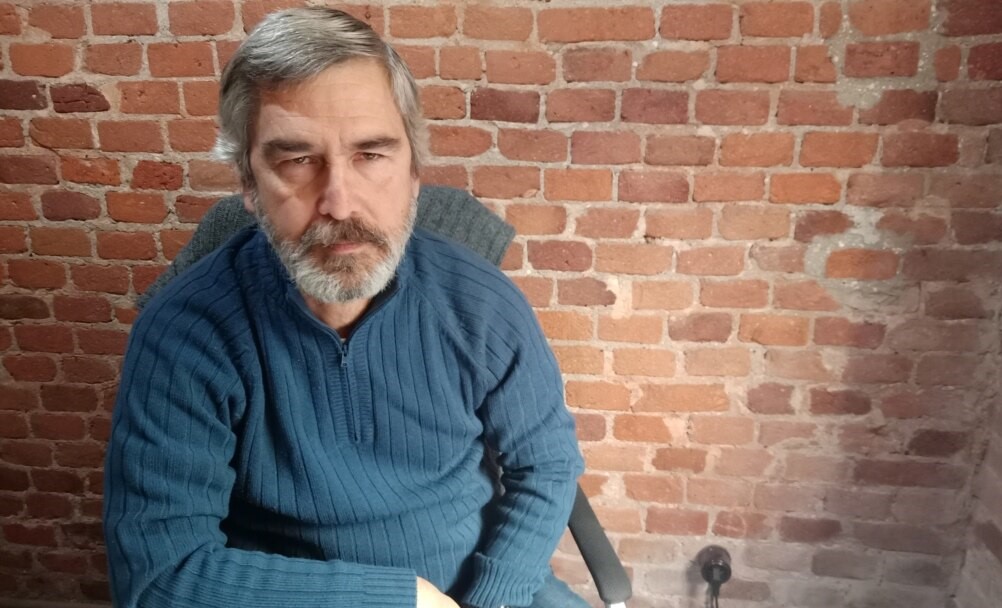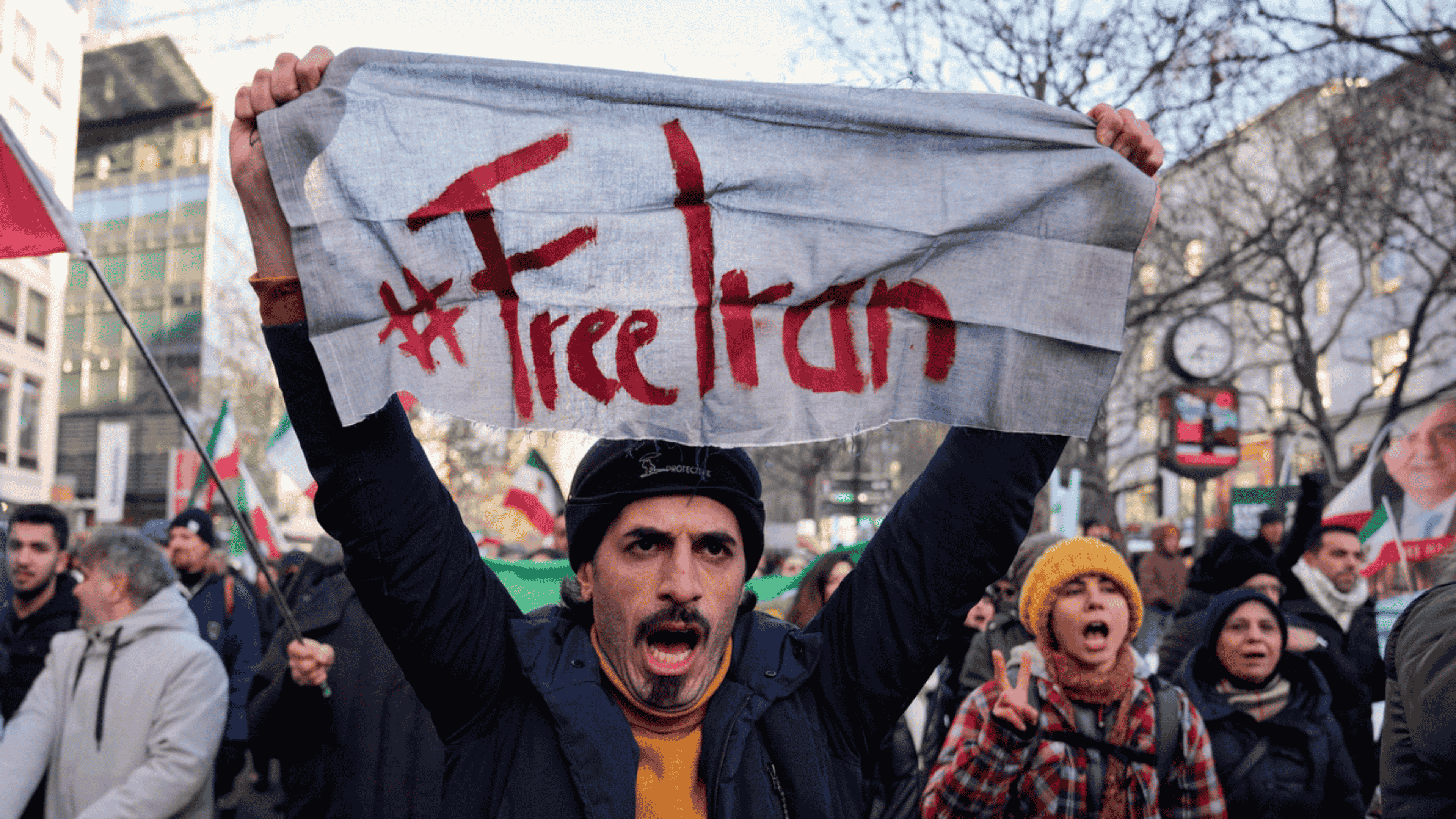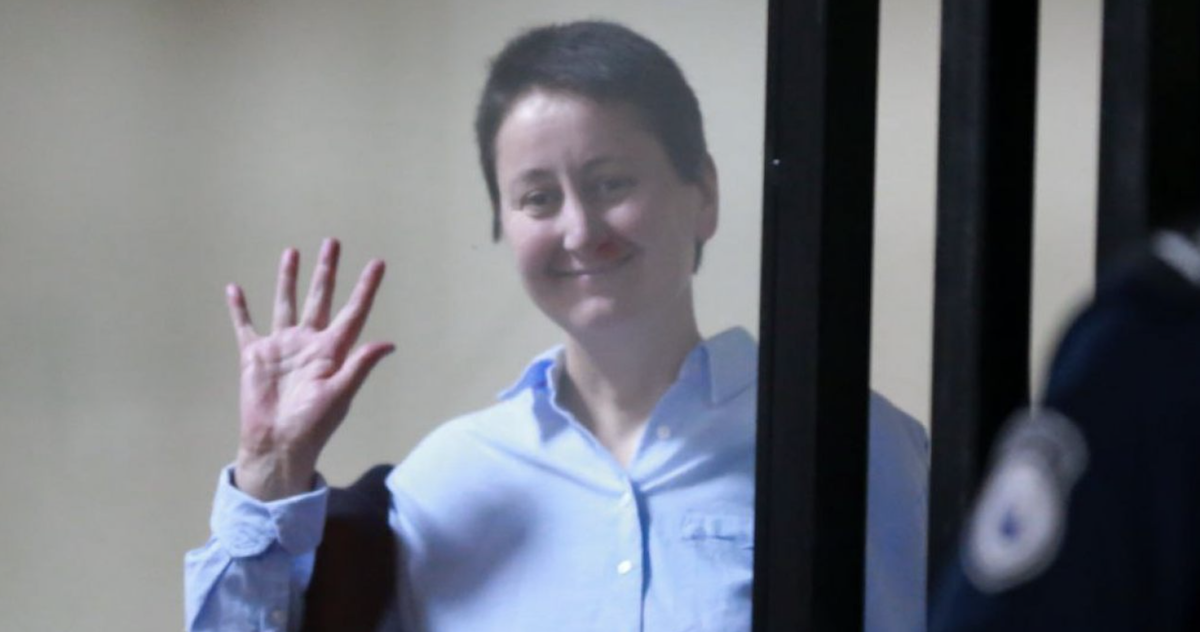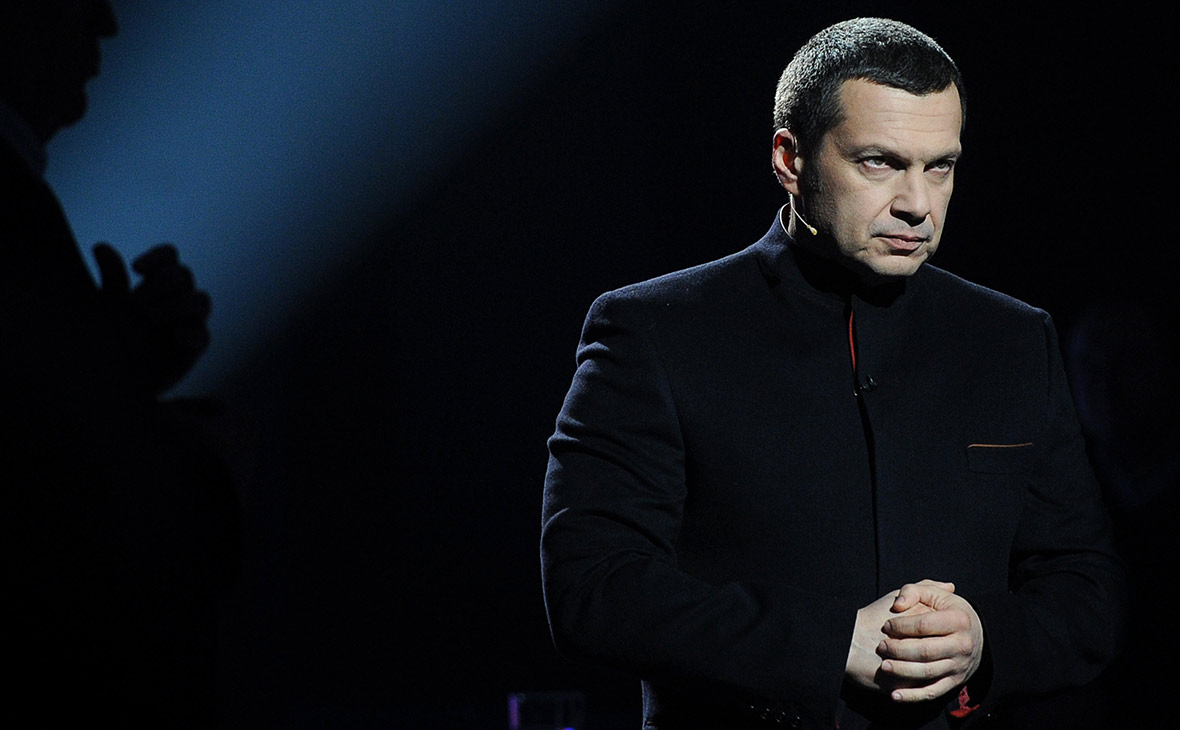‘You never know, whether you’ll return home alive or not’
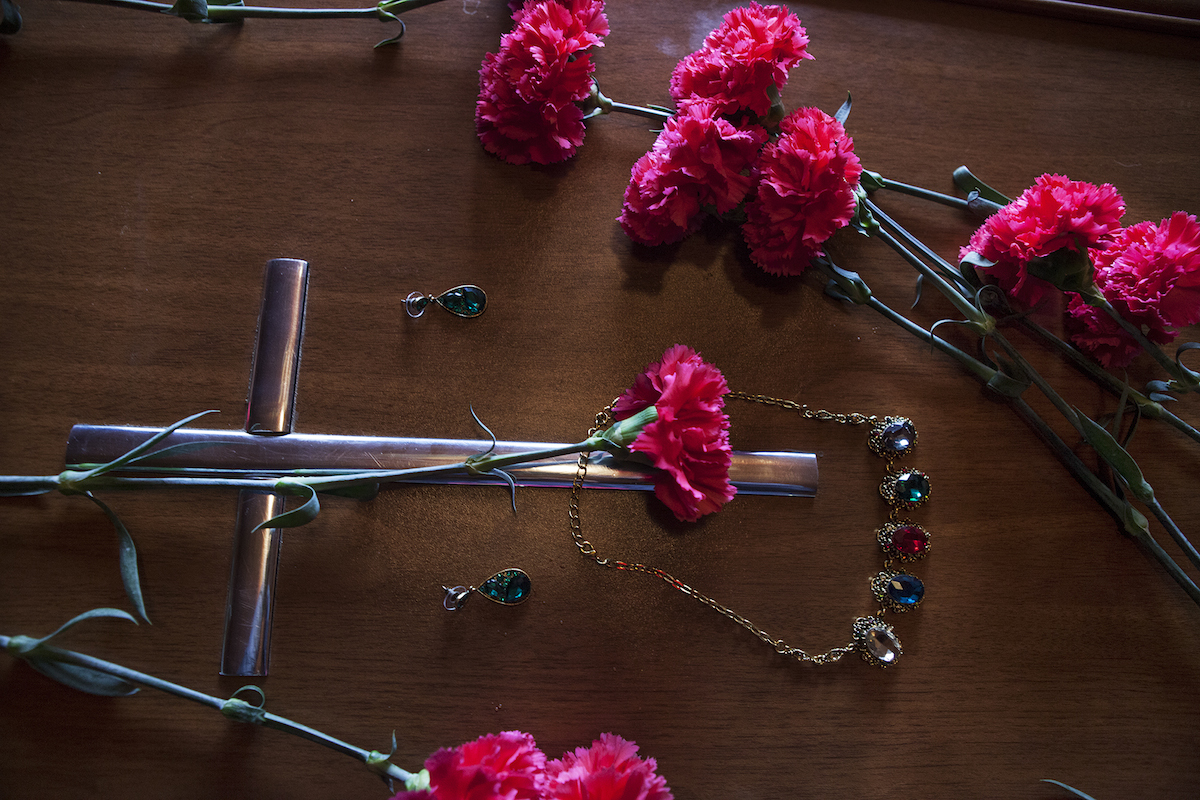
The first study on transgender people living in Georgia was conducted by the Women’s Initiatives Supporting Group (WISG) in 2012. The study revealed that transgender women in Georgia were subjected to discrimination almost in every sphere. Their rights were constantly violated: they were denied jobs; they were facing problems in public places-in the street, in transport or public institutions; they were constantly subjected to physical violence.
Almost nothing has changed since that time. The majority of transgenders still live in permanent discrimination, in extreme poverty and they have to earn their living through prostitution.
Two transgenders were killed and one died of gas asphyxiation in suspicious circumstances in her own apartment. Patrol police regularly receive transgenders’ phone calls, reporting on the attacks against them and seeking help.
Human rights activists claim, the authorities haven’t adequately responded to any of the high-profile cases, which further encourages a transphobic environment in the country. In addition, there are also homophobic and transphobic statements made by politicians and public figures, who use this theme to win voters’ hearts.
They often make direct calls for violence, which has a great influence on public. The latter is lacking sex and gender education and sometimes is even unaware, what the term ‘transgender’ means.
• 17 May: International Day Against Homophobia and Family Purity Day in Tbilisi
• Ukrainian journalists in Tbilisi: Georgians love Putin, not gays
Chapter1: Fatima
I’m sitting on the second floor of McDonald’s restaurant, waiting for the respondent. I’m a little bit worried, thinking of how our interview will proceed.
Today is November 25- the International Day for the Elimination of Violence Against Women. Georgian feminists are holding a rally on Rustaveli Avenue. I could a see a girl from the window, holding a poster that reads ‘Stop killing women!’
A handsome guy with auburn beard, wearing a fashionable jacket and jeans, approaches my tables.
“I’m Fatima Romanova,” he introduces himself to me. “That’s my inner person’s name.”
We are sitting in the city’s most crowded restaurant, drinking coffee and talking. I’m the only one among so many people gathered there, who knows that I’m actually talking to a woman.
Fatima is a transgender woman, though, unlike other women, she’s wearing the clothes bought in the men’s section, she has a beard and she looks manly.
“I’m Conchita Wurst,” she says jokingly. “I don’t need a dress and a lipstick to feel myself a woman. I hate that depilation and other women’s aesthetic procedures- I think, it’s a violence on one’s own body.”
However, it wasn’t always so. In summer 2013, Fatima manifested her gender identity through clothing. Her parents found this new style unacceptable and she left her home.
Fatima’s feminine life came to an end the day she was severely beaten in the street.
“One may think, this very case made me change my appearance and look masculine today. I certainly feel myself more secure, but the main reason is the disobedience to the community’s prompted rules. I believe that a woman may have a beard and be beautiful.”
We talked about Zizi, a transgender woman, who died in one of Tbilisi hospitals after being in coma for 40 days. She was taken to hospital after she had been severely beaten in the street.
“When you go out, you never know, whether you will return home or not,” says Fatima.
She says, she has never turned into a woman, she was born as a woman. Though, she found it hard to pass the transition stages.
“When the society tells you: you were born with a penis, i.e. you are a man, whereas you feel yourself like a woman, it really scares you. You think that you are abnormal, sinful.
Thousands of thoughts flash across your mind when you’re a teen. Maybe I should go to church and make a communion? Or commit a suicide? In the transition period, my own body irritated me, whereas I myself irritated others. I had a suicide and self-harm attempts; I had permanent conflicts with friends, parents. Those were terrible years,”says Fatima.
Today, she’s a member of the feminist organization. She could be often seen at the rallies for protection of transgenders’ rights. She’s also a social worker at a medical organization and she works as a waitress in a café at night. The relationship with parents have more or less improved and she also has some friends.
Her passport bears the same name, the very mention of which put her off. Though, she has never thought of officially changing her name.
“Does it matter, what’s written in the document? I use my passport only in bank or when I need to get public services. Anyway, everyone knows me as Fatima, or Antoshka. The latter is my social name that people also address me by. But I remember about my passport name only when I need some documents.”
When in transition age, she became obsessed with the idea of changing sex. Now she has already got accustomed to her body and, in her own words, she has learned to live in a man’s body.
“When a teen, I was almost driven to suicide by genitals, whereas now I’ve gradually accustomed to it. Or that’s probably not that I’ve got used to it, but rather have developed the self-defense skills. First of all, I should accept myself for who I am, “says Fatima.
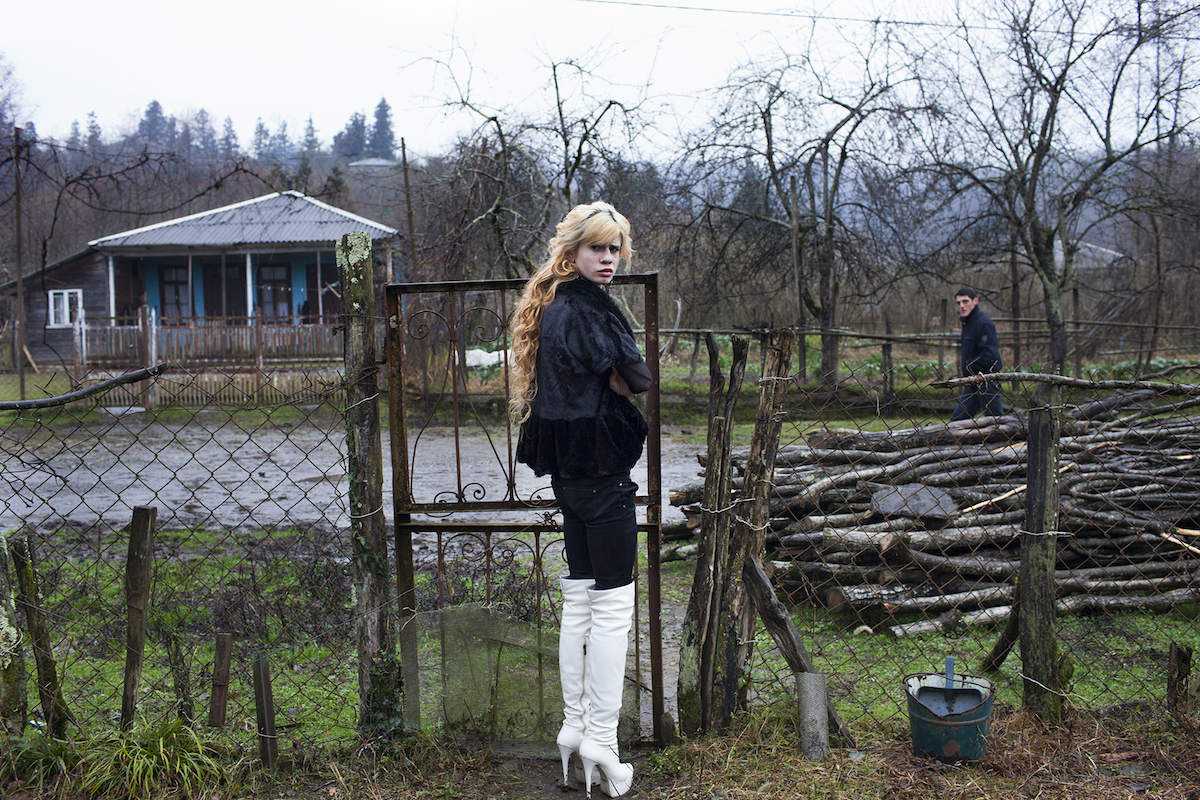
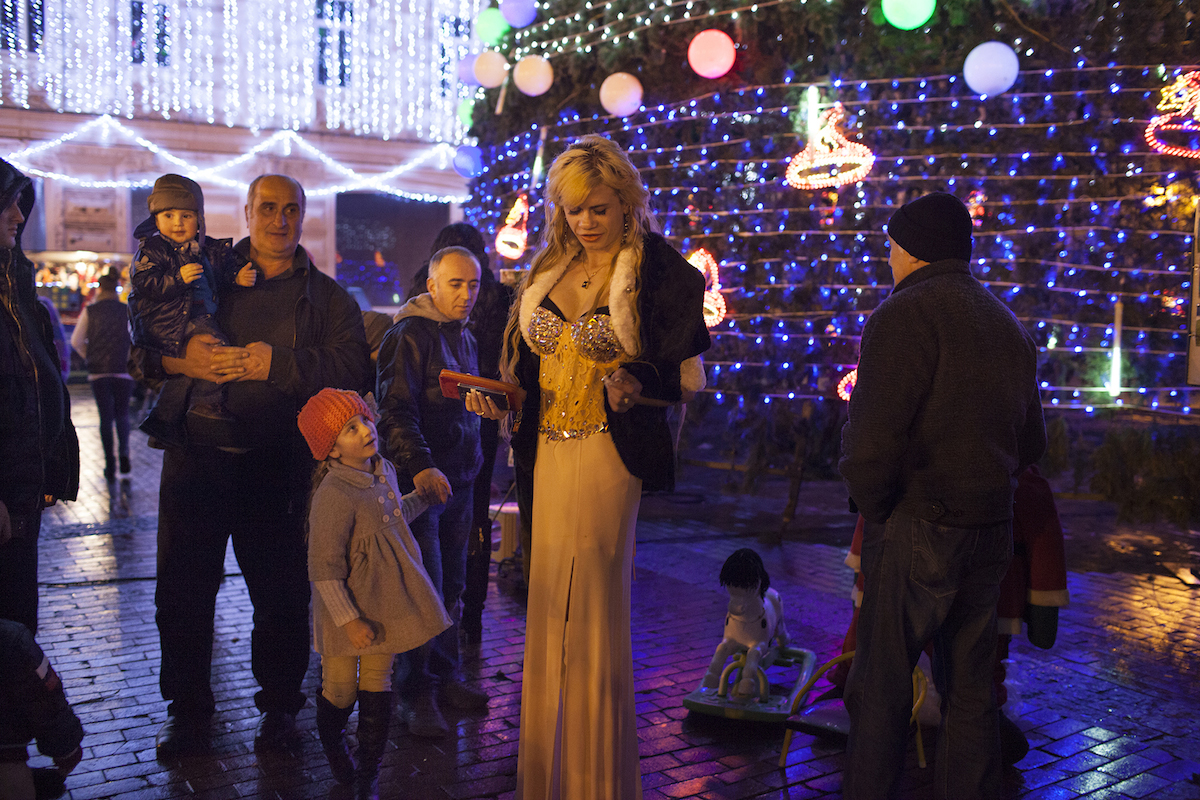
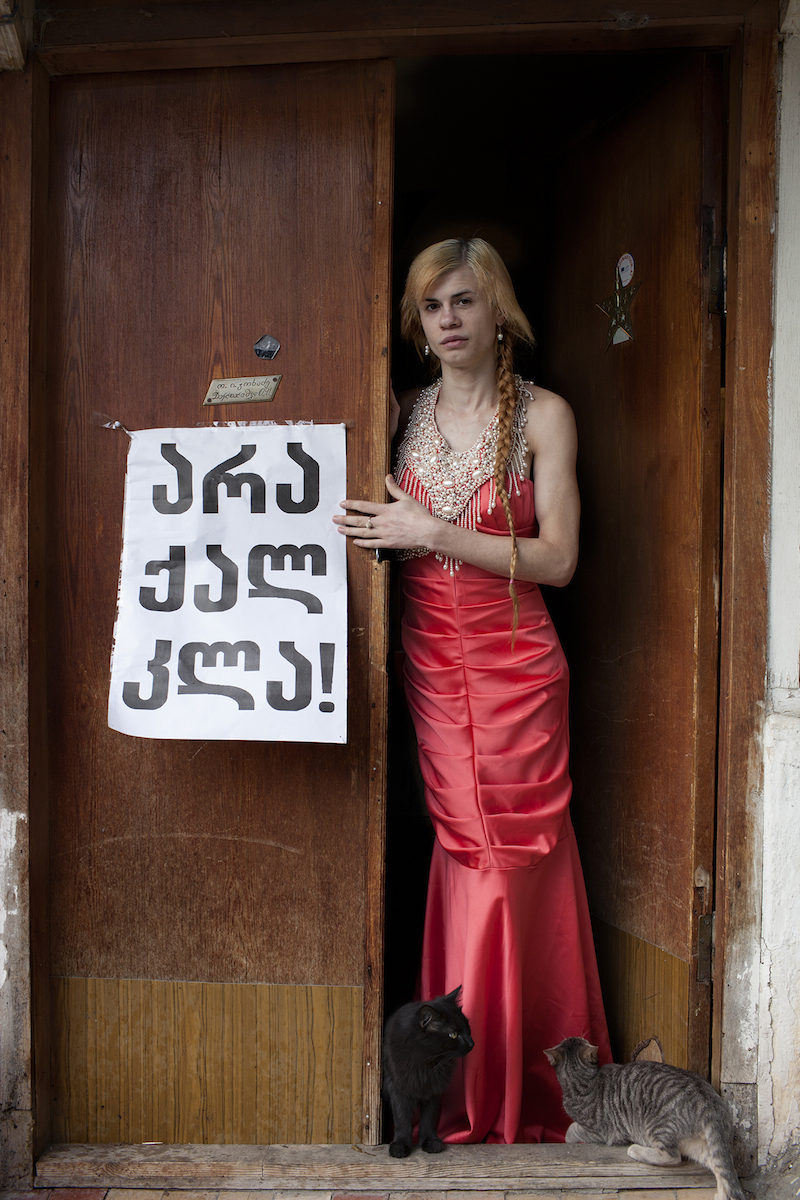
Chapter 2: Eto, Amanda and one more person
There are 3 transgender women-Eto, Amanda and one more person, who refused to tell her name, standing in the vicinity of Circus [the gathering place for sex workers in Tbilisi-JAMnews],at 10 p.m. They are wearing miniskirts, ‘fishnet tights’ and low-cut tops.
“We don’t feel cold, darling. We aren’t ‘straight’ like you,” Eto says jokingly, apparently mocking Eter Kakulia’s [a Gorgian singer with particular voice quality] speech manner.
Meanwhile, a taxi stops there, a driver pops out his head and starts swearing. Eto tries to kick the car, but the latter rapidly races off and rushes to the other side of the bridge.
“It’s just the beginning and the worst stuff is still to come,” says Eto. “Some 5-6 guys usually come together and we have to defend ourselves, because they would kick and beat us. Afterwards, when the whole mob disperses, one of them would come and apologize, saying: ‘Sorry, girls, I was ashamed to say it in my friends’ presence, but now I’m alone, so will you come with me?”
Eto could be seen in the vicinity of circus every night. In the daytime she wears men’s clothes and works in the hotel bar.
As for Amanda, you’ll never see her in men’s outfit. She says, she has failed to find a job until now. Having realized who she was, she has been trying to look like ‘a straight’. She has refused to wear a wig and has had her hair extended.
Amanda is a sex worker. She attended a bartending training course, but she has spent more time at the so-called ‘pleshka’ [beat; a gathering place for gays/bisexuals and transgender sex workers] rather than in a bar.
If you walk in the vicinity of the circus and ask people for the reason they stand there, most of them will tell you, they have no other choice. It’s the only place where a transgender woman can earn money to buy food, pay a flat rental fee, cover the utility service costs or other daily necessities.
“There is a little sum left for the care products and that’s it. You can’t earn here enough money for a surgery,” says Amanda.
Amanda dreams about having a job, though all doors have been closed for her for several years.
“They expect me to be the one I’m not. Physical abuse is also the case. I’ve already got used to psychological abuse-continuous affronting in the street, kicking, swearing.
I often have to call the police. Some of them abuse me physically. I’ve even stopped dreaming about having a job. Last time, I was denied a job in one of the restaurants on Vazha Pshavela Avenue, because they were allegedly afraid of losing their clients.
I left home because of my father. So, I earn money at ‘pleshka’ to pay the apartment rent. If you’re looking for a sex-partner, you will always find him here, but if you are dreaming of stable relationship, it’s hardly possible for a transgender woman,” says Amanda.
Chapter 3: Bart
“There is no mentioning of the transgenders’ rights in the law,” says Bart.
Bart is a 43-year-old man, with a short haircut, deep voice and the appearance resembling that of a hooligan.
On February 16, 2011, he made a birthday present to himself, having officially changed his name. For two years, he has been engaged in litigation, seeking change of gender marker on his passport. Biological sex indicated in his passport is a real head ache for him. He often finds himself in awkward situations. He recently had some problems in bank, where he was told, there was a mistake in his ID sex option.
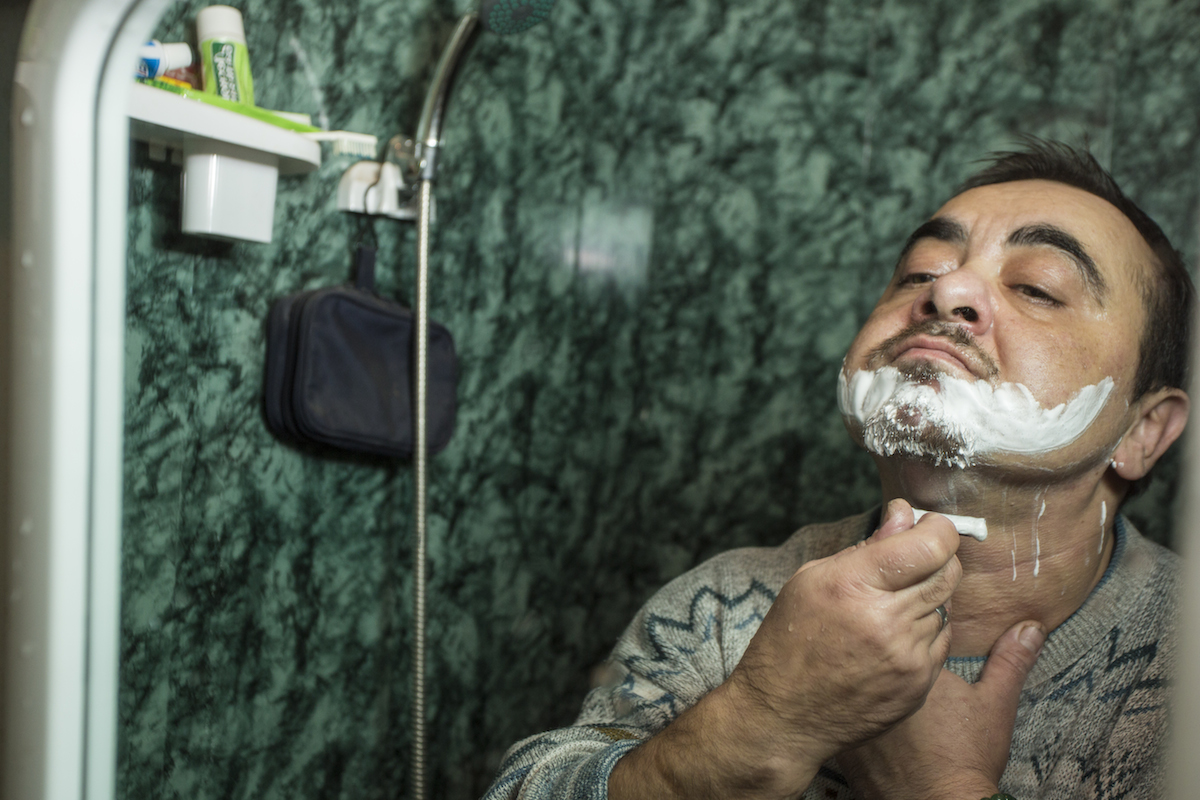
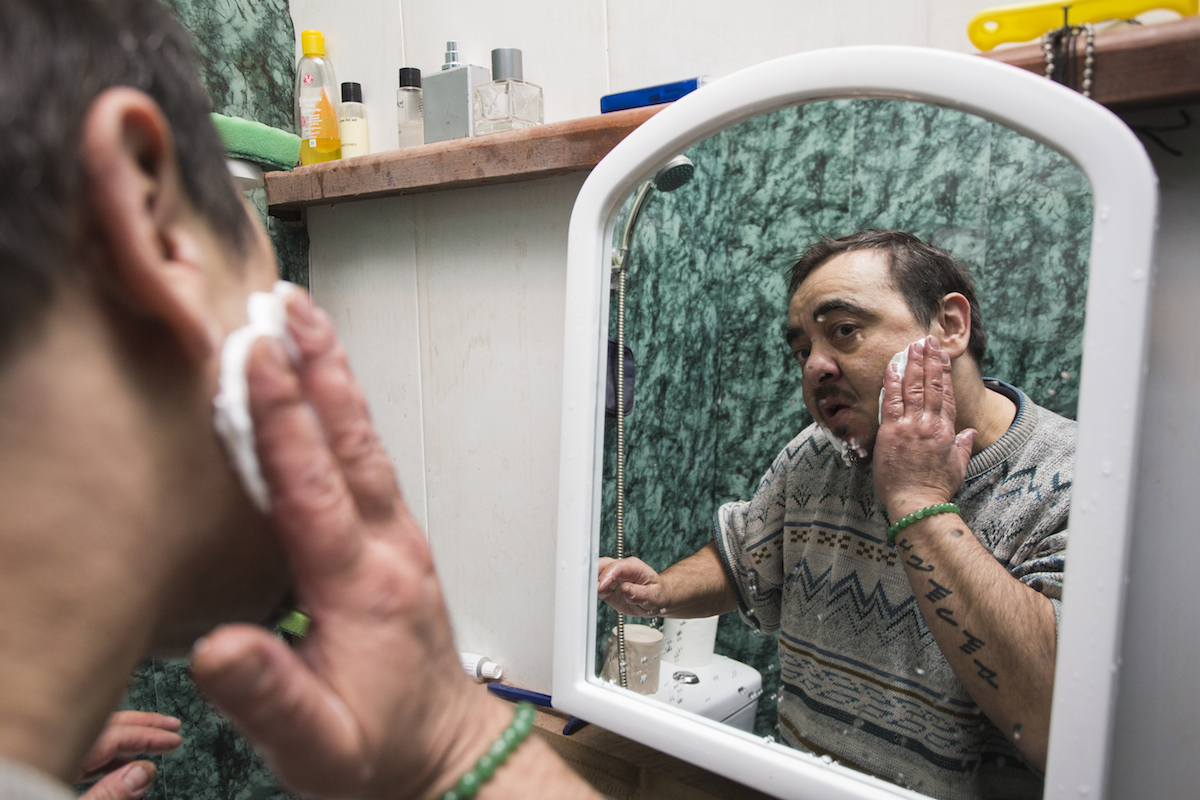
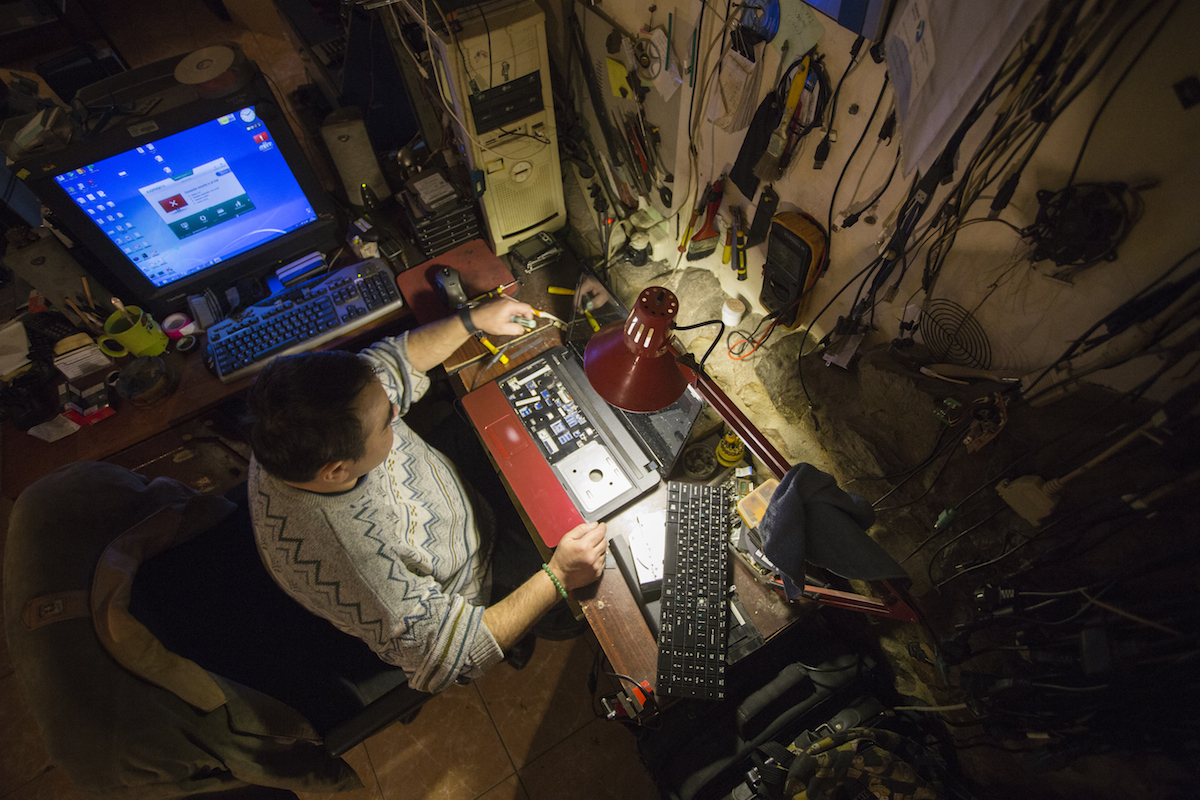
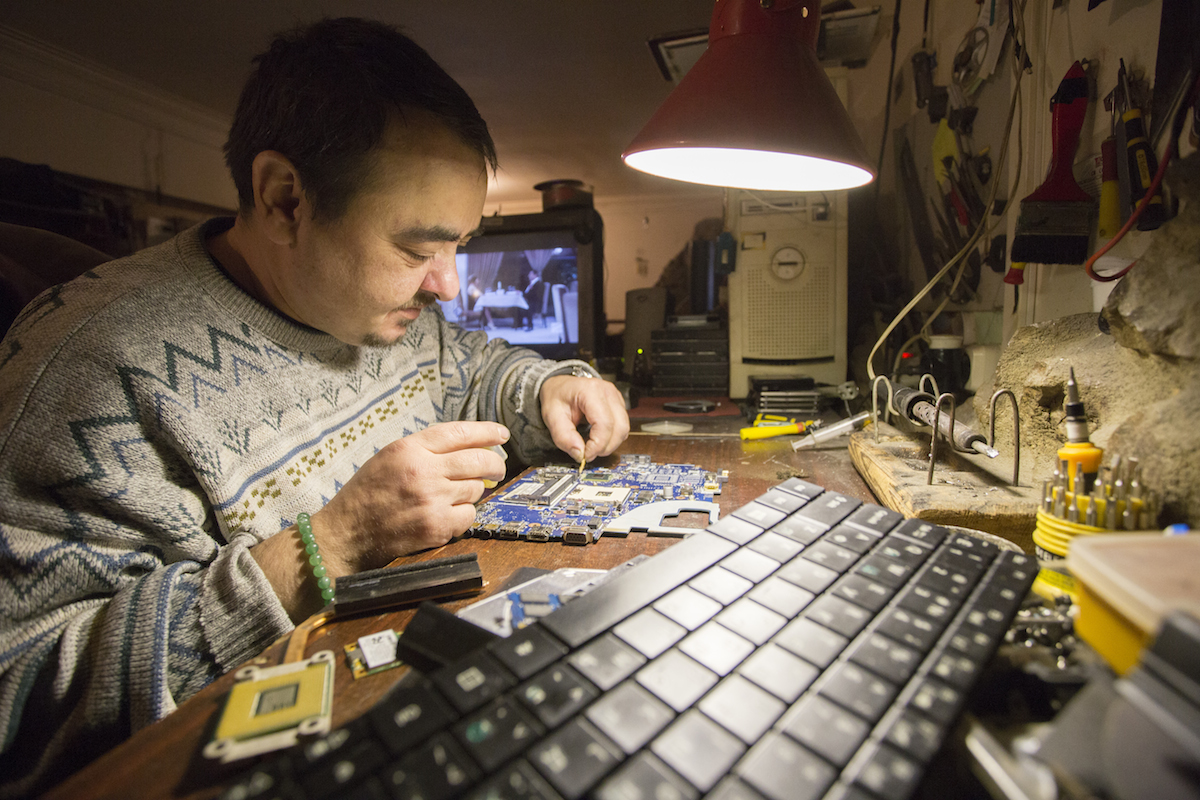
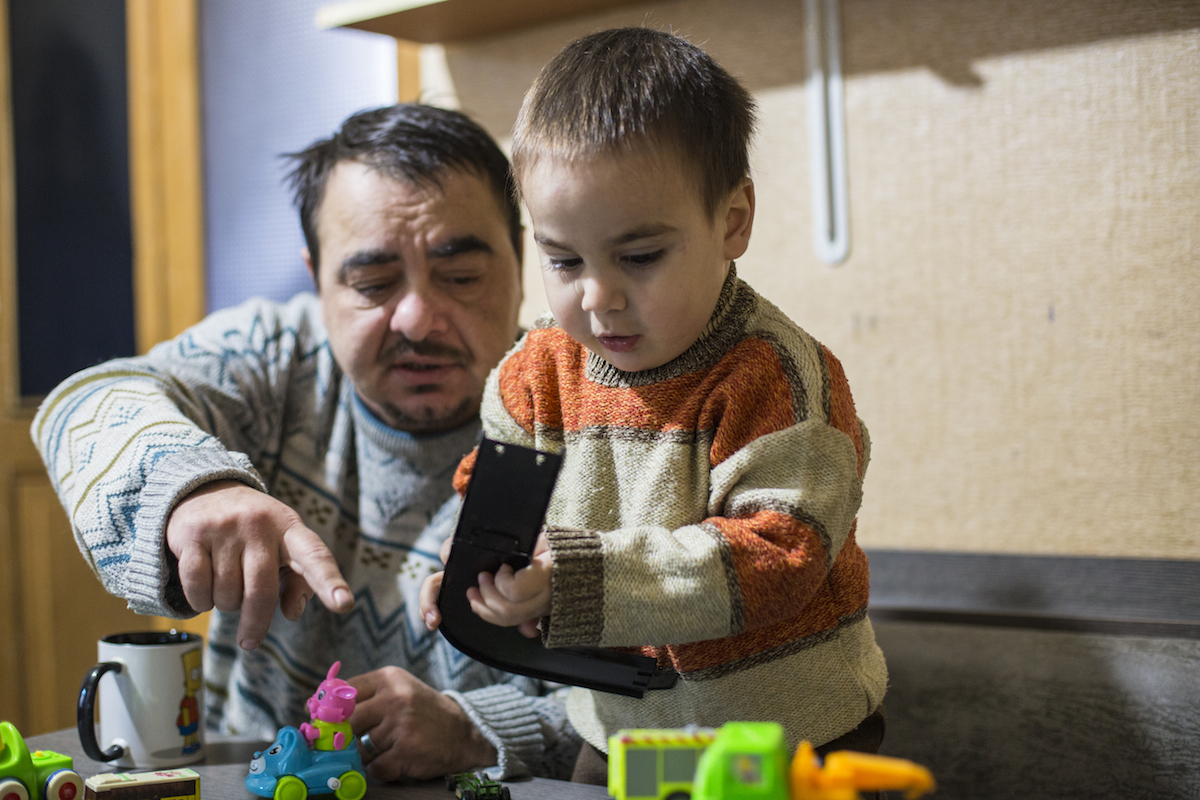

We met him in the office of the White Noise NGO, at the Freedom Square. Free University students were visiting the office at that time. They were doing a research on the transgenders’ life and they bombarded him with questions.
“When did you discover that you were a transgender man?’ one of the students asked him.
“No discoveries. I have always known who I am. I simply couldn’t call it like it was, because I myself didn’t know its name,” Bart answered.
And no wonder. How a child, raised in a traditional soviet Georgian family, was supposed to know anything about gender?
“My father was stuck in the 19th century. I have many siblings, who also used to have the conservatives views. For example, they were teaching my child that Whitney Houston was a bad woman, because she was a drug addict.”
Bart has 3 children, 1 biological and 2 adopted ones.
“How did you tell it to your children”? the students asked Bart.
In 2006, when the ‘Inclusive’ organization was functioning [the only LGBT organization in Georgia at that time], Bart decided to take his biological child to this organization and disclose his identity.
It was a bold and very risky decision, since 14-year old Tiko looked at things through her grandpa’s taught stereotypes (Bart was rarely at home). She perceived Bart as he mother and had no idea what being a transgender meant.
The day he told Tiko about himself is still the most important one in his life.
“That day I discovered that children are much more reasonable in perceiving something new, rather than adults. Tiko cried a lot and then embraced me and told me that she loved and would love me the way I was. Since that time she’s been not only my child, but also my best friend.”
Bart was born in a traditional Georgian family, in Tbilisi. Now he smiles as he recalls his childhood.
“My mother used to go to work early. So, she would leave the clothes that I was supposed to wear in the kindergarten on the chair. My father always reprimanded mother, because he always found a pair of trousers on the chair. Later it turned out that I myself would stealthily replace a dress with the trousers,” Bart recalls.
He always played with the boys in the yard, he wore sports trousers instead of the school uniform. The community still perceived him as a girl, who was referred to as Mate-boy (a girl disguised as boy). Once a lecturer mistook his name and called him Lado, but he didn’t correct him, he was pleased.
When Bart was a teenager, he hated his body. First he thought he was a lesbian. He didn’t even know the difference between gender identity and sexual orientation.
Today, the experts working on gender issues are unanimous in the opinion that gender identity is a personal conception of oneself as male or female, whereas sexual orientation is a person’s attitude towards others and it reflects one’s attraction towards males, females or both.
Bart learned about all that later.
“When I read a story about Maia Tskneteli [Maia Tskneteli, 18th century popular heroine, who took a man’s name –Mate, dressed as a man and started serving at the King Erekle II’s court- JAMnews], who turned into Mate-boy, I realized that I wasn’t alone in this world. Then I came across a magazine article about transgenders.”
So, he was gradually studying himself and giving a name to his personal identity.
Bart’s parents soon realized that there was ‘something wrong’ with him. The family tried to ‘readjust’ him for quite long: sometimes using the father’s belt, sometimes taking him to Andro Kandelaki, a sexologist.
“I was 17, when I ran away from home with my girlfriend. They found me and took me to Andro Kandelaki. When I entered his office, there was my notebook on the table, which my parents had stolen from my room. I will never forget that day. Later, even my parents realized that they couldn’t change anything. So, they backed off.”
Andro Kandelaki, a sex therapist (sexopathologist), still works in this field. He issues a ‘genuine transsexual certificate’. The latter is required for those, who are going to change sex. The certificate is issued upon completion of a 2-year course with sex therapist.
Bart doesn’t think much about changing sex nowadays.
“If I had been 17, I would have changed it, but there’s no point doing it now. Besides, I’m not sure, such operation will be properly done in Georgia, that it won’t affect erection or orgasm.”
Despite numerous challenges, Bart says, he is a happy man. He was 17, when he ‘madly fell in love’ with a woman, whom he has been loving with for 27 years already.
Bart is now looking forward to the court ruling – he insists on changing gender on his passport. If the court meets his request, it will be an unprecedented decision, since no one in Georgia has ever changed passport gender option until now.
Bart says, the transgender women have more problems with finding jobs, since the community has a more severe attitude towards them.
Though, Bart also had to face career challenges. Having worked in the police for 5 years, he quitted the job, since there was no chance for him to achieve any career advancement.
He has been working as a computer repair technician in Kekelidze street for a few years already.
There have been certain problems at this workplace too. For example, his colleagues saw him on TV, as he was participating in the rally on May 17 [the International Day Against Homophobia; many people in Georgia are negative about this date, since they view it as a propaganda of homosexuality, JAMnews] and ‘picked a fight’ with him..
“There are several workshops in Kekelidze street and the craftsmen in one of them opposed me, they started calling me ‘a pansy boy’, threatening me that they would pose problems to me and my colleagues if I didn’t quit the job. Finally, some tough guys from Vera district interfered and worked it out,” says Bart, adding that he didn’t like that things developed in ’90s’-style.
“Aren’t you going to quit?” I asked him.
“No, not for the world,” he answered. “I’ve been working there since 2006, I’m entirely taken up with this business. How am I supposed to defend anyone if I can’t defend myself










